By Munawwar Ahmed
On November 27, 2013, history books were rewritten when a small fishing and trading village of the 18th century won the rights to host the prestigious Expo 2020. Although a first for the Middle East, Dubai is no stranger to engineering feats and marvels that have evolved the city’s landscape into the metropolitan skyline it is today.
In just a little over 40 years, UAE’s GDP has radically jumped by nearly 231 times since the union was created in 1971 making the country the second largest Arab economy after Saudi Arabia.
Many cities within the UAE, however, have also sought to make a name for themselves on the regional and global stage as well.
Abu Dhabi, the capital of the United Arab Emirates, plays host to the world’s largest indoor and first Ferrari theme park, and houses the sustainable eco-friendly city, Masdar. Synchronous with the cultural renaissance, prestigious names such as the Louvre, by architect Jean Nouvel, is due for completion in the capital soon.
Not one to be left out, Sharjah, with over 17 museums and 400 mosques, was named the Cultural Capital of the Arab World by UNESCO (1998) and was titled the Capital of Islamic Culture (2014) through their unequivocal ability to preserve heritage and promote education in the face of globalization.
Recently, the remote city of Ras al Khaimah jumped on the bandwagon and now plans to position itself as a leading nature-focused tourism destination.
Today, the continuous strategic developments, manic spending patterns and the fiercely competitive trait of the emirates pose an irrefutable question – why are the emirates competing to become cultural capitals of the Arab World?
With over 30,000 cranes during the economic boom, and the subsequent emergence of 450 sky scrapers in just over two decades, the United Arab Emirates has produced multiple cities with a competitive spirit, an insatiable thirst to excel and the desire to, together, become one of the best countries in the world by 2021.
Cultural Roots
Deeply embedded in the sands of Arabia, the inherent Arab history and culture is where it all began. As Bedouins, Arabs were culturally renowned for their innate hospitality, greeting travelers with the word ‘Marhaba’ meaning ‘welcome’ in Arabic.
Today ‘Marhaba’ summarizes the attitude of the nation. Ranked 17th in the ‘Quality of Life Index’ the UAE continues to draw inspiration from their ancestral heritage as they strive effortlessly to promote tourism. From a mere 2.3 million tourists in 1995, the tourism industry has boomed to over 10 million arrivals in 2012 and is set to grow at 6.5% until 2021.
Many experts and officials attribute this rise to the effect of Expo 2020 and the recently launched ‘Vision 2020 for Tourism’ campaign that predicts tourist arrivals in excess of 20 million by 2020. With culture ingrained deep into the Arabs’ belief system, some of the wealthiest and most powerful business tycoons of the region, including Emaar Properties chairman Mohammed Al Abbar and banking magnate Abdul Aziz Al Ghurair, continue to wear the traditional dishdasha as a symbol of their proud heritage.
Long before Sharjah was named the Cultural Capital of the Arab World by UNESCO in 1998, established historian and Ruler of Sharjah, Sheikh Dr Sultan bin Mohammed Al Qasimi, strived to promote education and knowledge within the emirates and beyond. The city, home to some of the largest universities in the country, is now witness to his latest endeavor, ‘Knowledge without Borders’, which aims to establish a library in every home throughout the emirate.
Marwan Jassim Al Sarkal, deputy head of the organising committee of Knowledge without Borders, said “knowledge has no borders and that is why we are aiming to achieve the maximum coverage across all the areas of Sharjah, so that even people who are usually not exposed to books can expand their literary knowledge.”
Sheikh Sultan also opened the Sharjah Media Centre in 2011 to alter common stereotypes about the emirate and instead, portray it as a media-friendly city.
“To serve its ultimate purpose of highlighting the emirate’s progress and development as the region’s media and cultural hub, SMC facilitates a dialogue for and with Sharjah’s government institutions and the media to strengthen Sharjah’s status among the Arab and international media,” Sheikh Sultan said.
As a growing cultural hub in the Gulf region, Sharjah has only just begun.
The fourth edition of the Sharjah Light Festival, which begun on Thursday, was celebrated under the theme of ‘Sharjah: The Capital of Islamic Culture 2014,’ and narrated the story of the emirate’s Islamic history, heritage and architecture. The Arab Tourism ministers’ summit in Cairo also selected Sharjah as the Capital of Arab Tourism for the year 2015.
Strategically Competitive
The UAE strategically capitalizes on their geographical proximity to the Strait of Hormuz by acting as a logistical gateway for 25% of the world’s oil traffic, and with the rise of the new Southern Silk Road, fortunes are expected to grow. In a nation that continues to propel forward at breakneck speed, fueled only by heir ambitious desire to be numero uno, there is certainly a conspicuous competitive streak in the Arab mindset. When UAE ranked 8th among the most competitive nations in the world, HH Sheikh Mohammed bin Rashid al Maktoum, the Prime Minister of UAE said, “To the world we say: UAE people settle for no less than 1st place.”
Encouraged by a 25% surge in FDIs and substantial local investments, affluent Arab magnates and moguls, in their constant bid to outdo one another, are scripting the destiny of UAE only to accomplish the unthinkable. Man-made Palm Islands, the famed Guggenheim museum and Masdar City, home to the future headquarters for the International Renewable Energy Agency (IRENA), are but a few feathers in a rather illustrious cap.
When Sharjah took over as Islamic Culture Capital of the Arab Region in 2014 from Al Madina in Saudi Arabia, Sheikh Sultan bin Ahmed Al Qassimi, chairman of the Executive Committee for Sharjah’s Islamic Culture Capital organization, said “[Sharjah] embodied in the knowledge it disseminates continues to serve as a beacon of science among nations. Thanks to its abundant intellectual treasures, the emirate has managed to establish its cultural and Islamic identity so as to remain a source of pride for us, as well as for all Arabs.”
Even if the country’s oil wells were to run dry, which experts at ADNOC predict to be sometime in the next 80 years, the foresight of UAE’s leaders has fashioned a business model so robust that, with almost 13 million visitors per annum, the country is fast becoming a top tourist destination.
With sustainability playing a crucial role in strategic planning, and resonant with the Expo 2020 sustainability theme, almost 50% of the mammoth project’s energy requirements will be generated on site, while over 30% of recycled materials will be used for its construction. Estidama, the sustainability initiative by the Abu Dhabi Urban Planning Council, is currently supervising developments across the country with hopes of a nationwide decrease in energy consumption by 30% by 2030 and it comes as no surprise that the world’s most sustainable building is located in UAE.
United Vision
“We, in the UAE, have no such word as “impossible; it does not exist in our lexicon”, said HH Sheikh Mohammed bin Rashid al Maktoum, Vice-President and Prime Minister of the UAE, and Ruler of Dubai.
A vital factor, vision has played a crucial role by allowing UAE to dream the impossible. While superpowers around the world were battling the market crash, Dubai was bidding for its most elaborate endeavor to date – Expo 2020, whose tagline ‘Connecting Minds, Creating the Future’ resonates the nation’s foresight.
The strategically competitive, yet united vision to be the best has certainly brought the country a long way from the fishing village they once were. With nearly 150 world records to their name, including the largest mosaic greeting card by Ajman to celebrate the ‘Union Spirit’ and the tallest building in Dubai – the Burj Khalifa, these cultural capitals are certainly doing well to highlight the United Arab Emirates and portray themselves as up-and-coming cultural capitals in the Middle East.
After all, ‘impossible’ would not bring the Louvre into the sands of Arabia, create man-made islands that could be seen from outer space and certainly would not have given the former fishing and trading village the opportunity and honour to host Expo 2020.

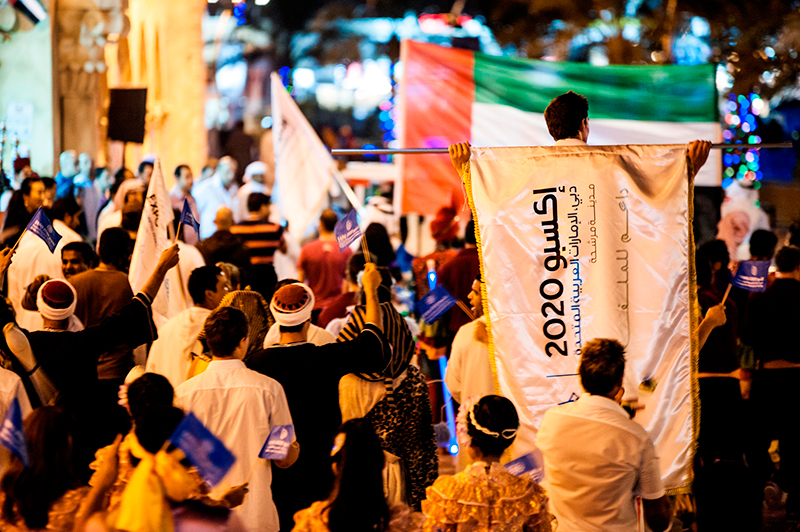
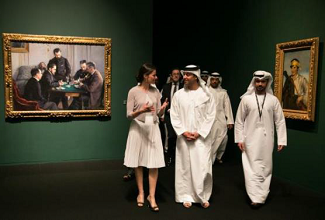
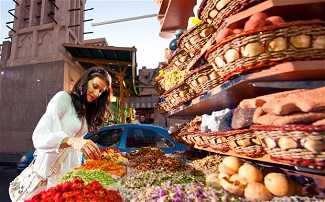
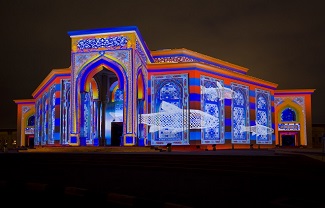
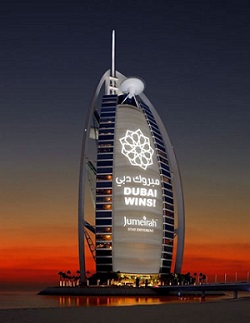




























A very enjoyable read! It’s so nice to see other emirates being profiled, rather than just the typical praises of Dubai and Abu Dhabi. 🙂
Thank you for your comment. And yes, I agree. The other emirates also have some notable achievements to their name.
Very interesting fact about Arab world. Good one
Thank you!
Absolutely Awsome! Well written and very informative. Keep up the good work!
Thank you for your comments.